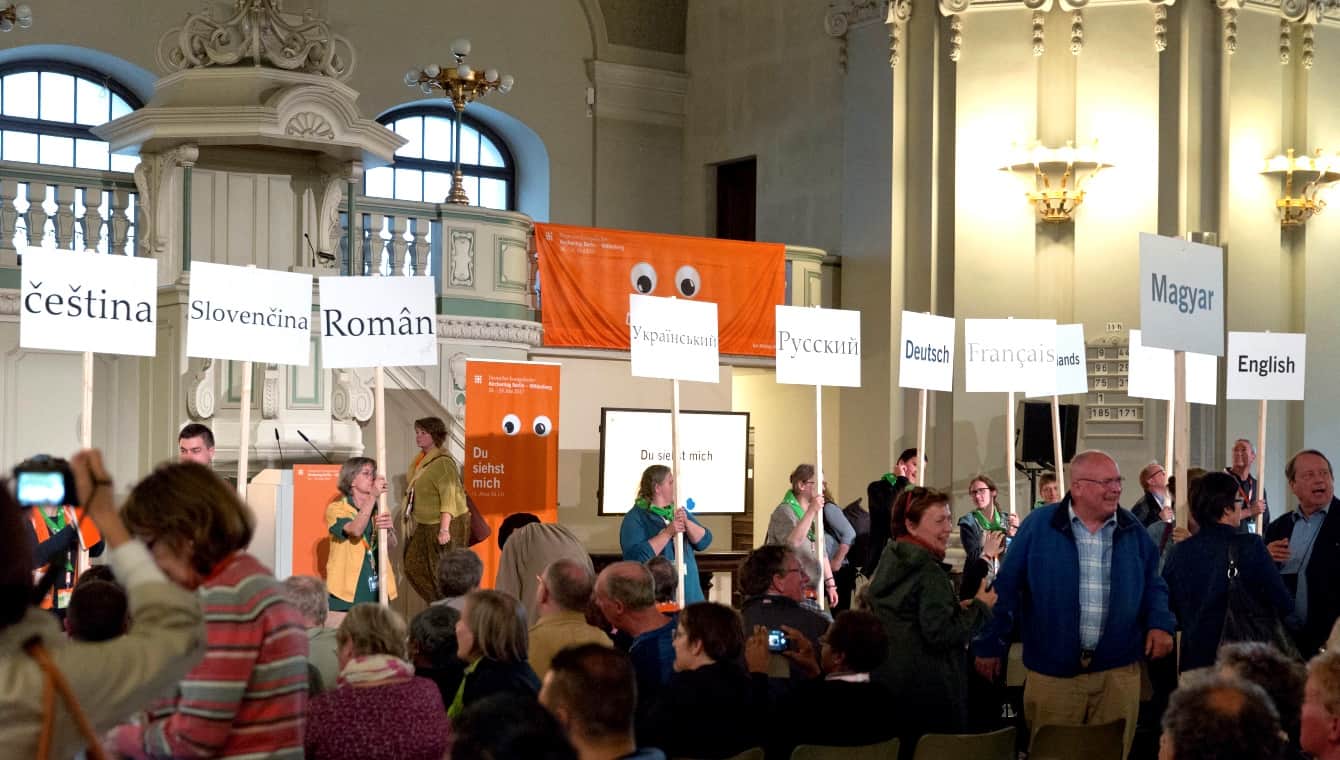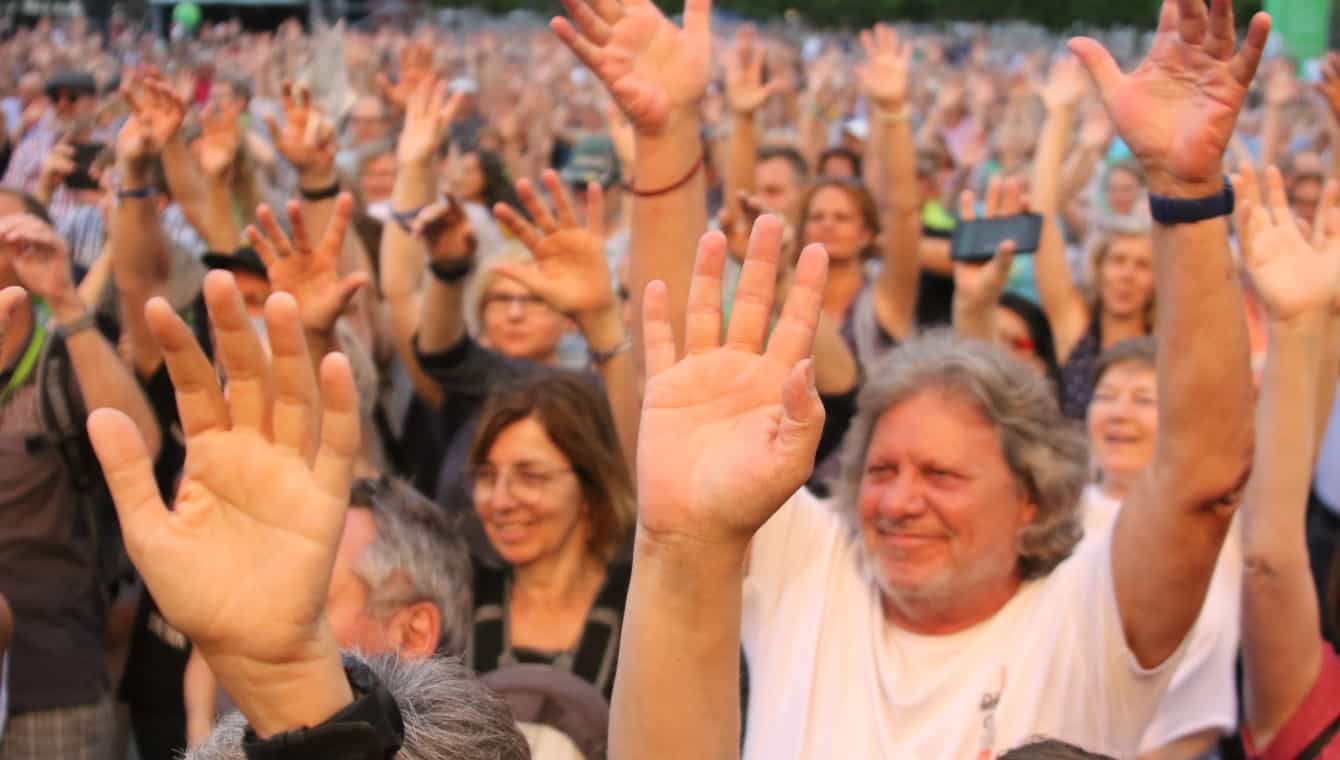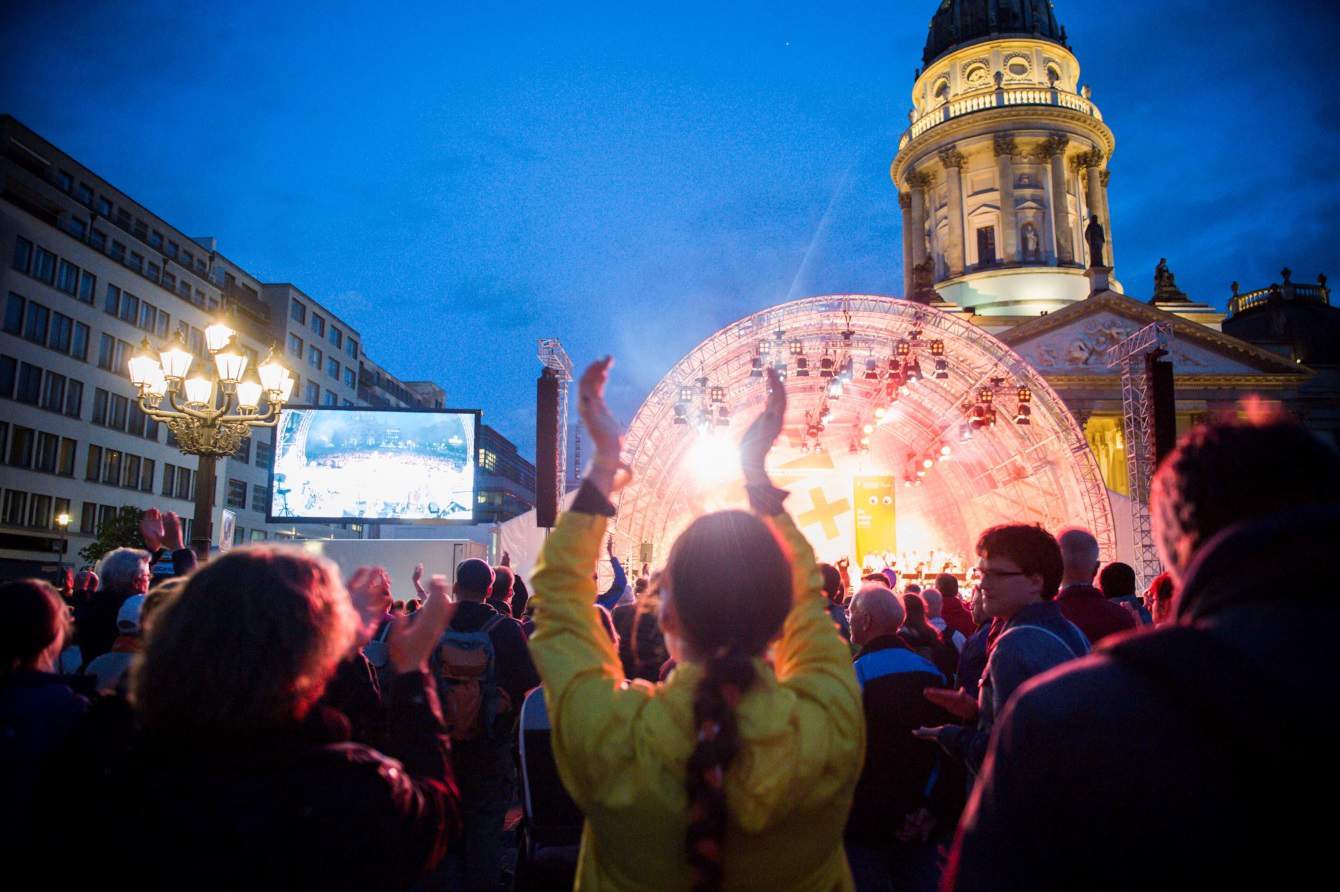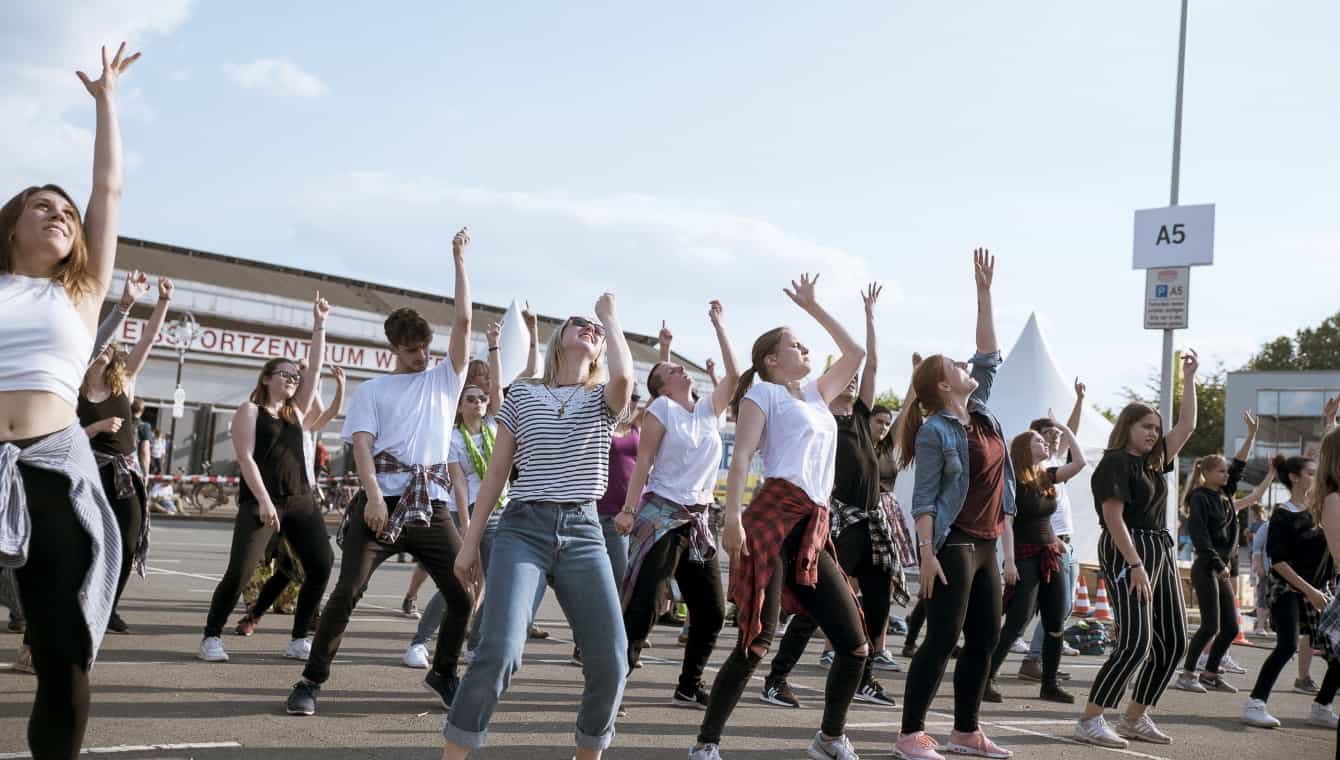International Centre
Kirchentag 2025

The International Centre (IZ) is open from Tuesday 29 April to Saturday 3 May and is the meeting point for international participants and their hosts. It is located in the Five Continents restaurant (Hall 19/20), to the right of the North entrance to the Exhibition grounds.
It provides services for participants from abroad and their hosts. The IZ team is available to offer help, in a variety of languages, with any questions or problems concerning the Kirchentag, the programme or accommodation. There is a café offering the opportunity for a short break and meeting up with other international participants and the members of the International Committee.
The IZ is located at:
M Restaurant Five Continents, Exhibition grounds (Hall 19/20)
Opening hours:
Tue 12.00–20.00
Wed-Sat 09.00–20.00
Services:
- Coffee and snacks
- ticket collection, registration and support services in English
- escorting guests to group quarters
- Whisper interpreters who may accompany you to events of your choice
- Recommendations regarding worthwhile events
- Place for networking and sharing, e.g. supported by board games or a group room

Tel.: +49 661 96648 - 105
E-Mail: international(at)kirchentag.de



